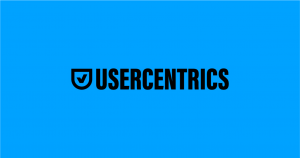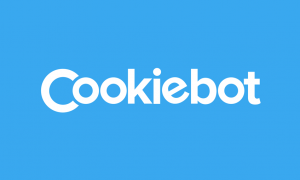Top Consent Management Platforms for Google Consent Mode V2 in 2024
Table of contents
- Understanding Google Consent Mode V2 Requirements
- Evaluating Consent Management Platforms
- Top 10 CMPs for Google Consent Mode V2
- CMP 1: OneTrust
- CMP 2: CookieYes
- CMP 3: Usercentrics
- CMP 4: Cookiebot
- CMP 5: Piwik PRO
- CMP 6: Osano
- CMP 7: Ketch
- CMP 8: Didomi
- CMP 9: TrustArc
- CMP 10: Iubenda
- Conclusion - SSL/TLS in 2024
- FAQs
In 2024 managing user consent has become a critical aspect of online business operations. With the introduction of Google Consent Mode v2, website owners face new challenges in handling consent preferences and ensuring GDPR compliance. This is where consent management platforms (CMPs) come into play, offering solutions to streamline consent tracking and optimize user experiences while adhering to data privacy regulations.
As you navigate the complex world of consent management, finding the right CMP for your needs is crucial. This article will guide you through the essentials of Google Consent Mode v2 requirements and provide insights on evaluating different consent management solutions.
You’ll discover a curated list of top CMPs that excel in consent optimization and offer robust consent management features. By the end, you’ll have a clear understanding of the best options to implement a Google-certified CMP that aligns with your consent and preference management goals.

Understanding Google Consent Mode V2 Requirements
Google Consent Mode V2 is a significant update that aims to enhance user privacy and comply with data protection regulations. This new version introduces changes that affect how websites collect and use user data for advertising and analytics purposes.
New Consent Parameters
Google Consent Mode V2 introduces two new consent parameters in addition to the existing ones. These parameters are:
- ad_user_data: This parameter determines whether a user’s personal data can be used for advertising purposes. It can be set to either ‘granted’ or ‘denied’ based on the user’s consent.
- ad_personalization: This parameter controls whether user data can be used for personalized advertising and remarketing. Like ad_user_data, it can be set to ‘granted’ or ‘denied’.
These new parameters work alongside the existing ad_storage (for advertising cookies) and analytics_storage (for analytics cookies) parameters. Unlike the existing parameters, ad_user_data and ad_personalization don’t directly affect how tags behave on the site. Instead, they instruct Google services on how user data can be used for advertising.
Impact on Ad Personalization
The introduction of these new parameters has a significant impact on ad personalization and user data usage. Here’s how:
- If ad_user_data is set to ‘denied’, ad measurement and personalization for online advertising will be disabled. This includes use cases supported by user_id and user-provided data.
- If ad_personalization is set to ‘denied’, personalized advertising will be disabled. This affects features like remarketing in Google Ads, Display & Video 360, and Search Ads 360.
- Both ad_user_data and ad_personalization need to be granted to enable personalized advertising in Google advertising platforms.
These changes give users more control over how their data is used, but they also present challenges for marketers. Without consent for these parameters, remarketing strategies become more difficult to implement, and ad performance optimization becomes more challenging.
Compliance Deadlines
Google has set a strict deadline for implementing Consent Mode V2. Here are the key points to remember:
- The deadline for implementing Google Consent Mode V2 is March 6th, 2024.
- This change is mandatory for businesses operating in the European Economic Area (EEA) and the United Kingdom.
- Non-compliance with Google Consent Mode V2 will result in less effective ad campaigns and limited ability to serve ads on Google platforms.
- Failing to implement Consent Mode V2 by the deadline will mean that businesses relying on Google Ads for customer acquisition will only be able to serve non-personalized ads based on aggregated data.
- From March 6, 2024, Google will block the capture of new EEA user data, affecting storage in Google Analytics 4 and sharing with Google Ads for non-compliant websites.
To ensure compliance, websites need to update their consent management platforms (CMPs) to support Google Consent Mode V2. It’s crucial to use a Google-certified CMP that supports the new version and integrates with the IAB TCF 2.2.
By implementing these changes, websites can continue to collect valuable data related to new UK and EEA users interacting with their website or ads, run effective ad campaigns, and stay compliant with current EU privacy legislation.
Remember, while Google Consent Mode V2 is a tool to help with compliance, it doesn’t automatically make a website compliant with data privacy laws. Valid consent still needs to be obtained via a CMP for the use of cookies and other tracking technologies on websites and apps.
Evaluating Consent Management Platforms
When selecting a consent management platform (CMP) for your website, it’s crucial to consider several key factors to ensure compliance with data privacy regulations and provide a seamless user experience. Here are some essential aspects to evaluate:
Google Certification
One of the most important considerations when choosing a CMP is Google certification. Google-certified CMPs have undergone rigorous testing and approval for data handling, consent management, and privacy compliance. This certification is particularly crucial for businesses targeting users in the EU, EEA, and the UK.
A Google-certified CMP partner, such as Enzuzo, can help you navigate the complexities of data privacy regulations effectively. These platforms are designed to work seamlessly with Google’s advertising products, ensuring that your consent management practices align with Google’s requirements and help you maintain compliance with privacy regulations.
User Interface and Experience
The user interface of a CMP plays a vital role in determining user experience and engagement. Look for platforms that offer intuitive and user-friendly interfaces for both website administrators and visitors. This ensures smooth navigation and efficient consent management.
When evaluating the user interface, consider the following aspects:
- Customization options: The CMP should allow you to tailor consent banners, preference management interfaces, and cookie settings to align with your brand identity and user preferences. This customization helps create a cohesive consent experience that matches your website design and messaging.
- Clear and concise consent options: The platform should provide users with clear and easily understandable consent options, ensuring compliance with legal requirements like GDPR and CCPA.
- Flexibility in design: Look for CMPs that offer design options within the tool interface or allow for custom CSS support. This flexibility enables you to create a banner experience that reflects each distinct brand, including logos, colors, and verbiage.
Integration Capabilities
The integration capabilities of a CMP are crucial for seamless implementation and efficient consent management across your digital properties. Consider the following aspects when evaluating integration capabilities:
- Compatibility: Ensure that the CMP is compatible with your existing technology stack, including your website platform, content management system (CMS), and third-party integrations. This compatibility minimizes implementation challenges and maximizes efficiency.
- Tag management system integration: Check if the CMP can be connected with your tag management system. This integration allows you to adjust settings in these tools based on users’ consent.
- Data synchronization: Look for platforms that support data synchronization across all systems to ensure consistent consent management. This synchronization helps maintain accuracy in user data and reduces the risk of errors and non-compliance.
- Google Consent Mode support: If you utilize the Google marketing stack, consider CMPs that support Google’s Consent Mode functionality. This feature allows sites to augment their data collection in a consent-appropriate fashion and capture modeled behavioral and conversion data in platforms like Google Analytics 4, Google Ads, and Campaign Manager.
- Cross-domain and multi-domain consent: For organizations with multiple websites or subdomains, look for CMPs that offer cross-domain and multi-domain consent grouping capabilities. This feature enables you to record and store consent preferences across multiple sites and subdomains, streamlining consent management processes.
By carefully evaluating these aspects of consent management platforms, you can choose a solution that not only ensures compliance with data privacy regulations but also provides a user-friendly experience for your website visitors. Remember to consider your organization’s specific needs, scalability requirements, and the level of support and maintenance offered by the CMP vendor when making your decision.
Top 10 CMPs for Google Consent Mode V2
CMP 1: OneTrust
OneTrust offers a comprehensive consent management platform with extensive features for websites, apps, and connected TV channels. This Google-certified CMP provides robust tools for cookie consent, website scanning, and cookie blocking. OneTrust’s platform includes ESG reporting, assessment automation, and data mapping functions, making it suitable for enterprise-level organizations.

CMP 2: CookieYes
CookieYes is an all-in-one consent management platform that simplifies compliance with major data privacy regulations. As a Google-certified CMP, it supports IAB TCF v2.2 integration and automatic compliance with Google Consent Mode v2. CookieYes offers customizable cookie banners and an intuitive user interface, making it easy for businesses to tailor consent experiences to their branding requirements.

CMP 3: Usercentrics
Usercentrics is a versatile consent management platform available in over 180 countries. As a Google-certified CMP, it ensures compliance with Google’s requirements, including the EU user consent policy. Usercentrics offers extensive integration options with popular marketing tools and platforms, making it suitable for businesses of all sizes. The platform provides solutions for preference management, data subject access requests, and server-side tagging services.

CMP 4: Cookiebot
Cookiebot, now part of Usercentrics, is a Google-certified CMP that offers automated scanning of cookies and tracking technologies for websites. It provides regular website scans to detect all cookies and trackers, saving time for website owners. Cookiebot’s cookie declaration feature automatically updates privacy policies and populates consent banners with granular user notifications. All cookies are blocked until explicit user consent is provided.

CMP 5: Piwik PRO
Piwik PRO offers a comprehensive analytics suite that includes a robust consent management platform. Focused on user privacy and data security, Piwik PRO Consent Manager is an integral part of their analytics suite. The platform is ISO 27001 certified and complies with various global privacy regulations, making it suitable for organizations prioritizing data protection.

CMP 6: Osano
Osano provides a powerful consent management solution designed to help businesses comply with data protection regulations. The platform offers customizable cookie consent banners and simplifies compliance with various privacy laws. Osano’s unique “No Fines, No Penalties” Pledge assures coverage for fines up to $200,000 for users of their legal workflows, providing added peace of mind for businesses.

CMP 7: Ketch
Ketch offers a comprehensive privacy-focused platform with a wide range of tools and features for collecting and enforcing customer privacy preferences. The Ketch Trust by Design platform includes pre-built templates for compliance with GDPR and CCPA/CPRA, among other regulations. Its native identity resolution feature enables custom-made privacy experiences utilizing user preferences across devices and channels.

CMP 8: Didomi
Didomi is a European-based consent management platform that emphasizes user experience and adherence to major data privacy regulations. The platform offers full flexibility in customizing the consent management experience, including the ability to translate content into over 50 languages. Didomi’s responsive customer service ensures that questions are addressed quickly.

CMP 9: TrustArc
TrustArc is an established player in the cookie consent management business, offering a full suite of products and services. The platform provides consent notifications in 45 languages and robust reporting capabilities. TrustArc’s Privacy Management Platform allows organizations to select specific services based on their needs, making it suitable for companies without dedicated data privacy teams.

CMP 10: Iubenda
Iubenda offers a versatile consent management platform that helps businesses comply with global privacy regulations like GDPR and CCPA. With an intuitive interface and automated updates, Iubenda ensures easy management of cookie consent, privacy policies, and terms & conditions. Ideal for businesses of all sizes, it provides seamless integration with websites and apps to simplify compliance efforts.

Conclusion - Which on of the top consent management platforms to choose?
As the digital landscape evolves, consent management platforms have become essential tools to navigate the complexities of data privacy regulations and user preferences. The introduction of Google Consent Mode V2 has further highlighted the need for robust CMPs that can handle new consent parameters and ensure compliance. From OneTrust’s comprehensive enterprise solutions to Iubenda’s option for smaller businesses, there’s a wide range of platforms to suit different organizational needs and budgets.
LET'S START A PROJECT
Choosing the right CMP involves careful consideration of factors such as Google certification, user interface, and integration capabilities. By implementing a suitable consent management solution, businesses can not only comply with regulations but also build trust with their users. This trust, in turn, can lead to improved user engagement and more effective digital marketing strategies. As we move forward, the role of CMPs in balancing user privacy with business needs will only grow in importance.
FAQs
What is Google Consent Mode V2?
Google Consent Mode V2, launched in late 2023, is an enhancement of the original Consent Mode by Google. It enables websites to more effectively and compliantly communicate user preferences regarding cookie consent to Google’s services like Google Ads and Analytics.
What enhancements are included in the Google Consent Mode V2 update?
The V2 update of Google Consent Mode provides enhanced granularity in data collection and usage controls, introducing new parameters such as ad_user_data and ad_personalization for more precise management of advertising and personalization data. It also includes options for Basic and Advanced Consent Modes.
What is a Consent Management Platform (CMP)?
A Consent Management Platform (CMP) is a technological tool designed to assist organizations in collecting, managing, and documenting user consents for personal information in accordance with various data protection regulations like the GDPR in the EU, CCPA in California, and LGPD in Brazil.
How can one ensure compliance with Google Consent Mode V2?
To comply with Google Consent Mode V2, adjustments are necessary for your tracking tags and cookie policy. Utilizing a Google-certified Consent Management Platform (CMP), such as Cookiebot or OneTrust, can simplify compliance, often requiring no changes to your site’s Google Tag Manager or backend systems.

